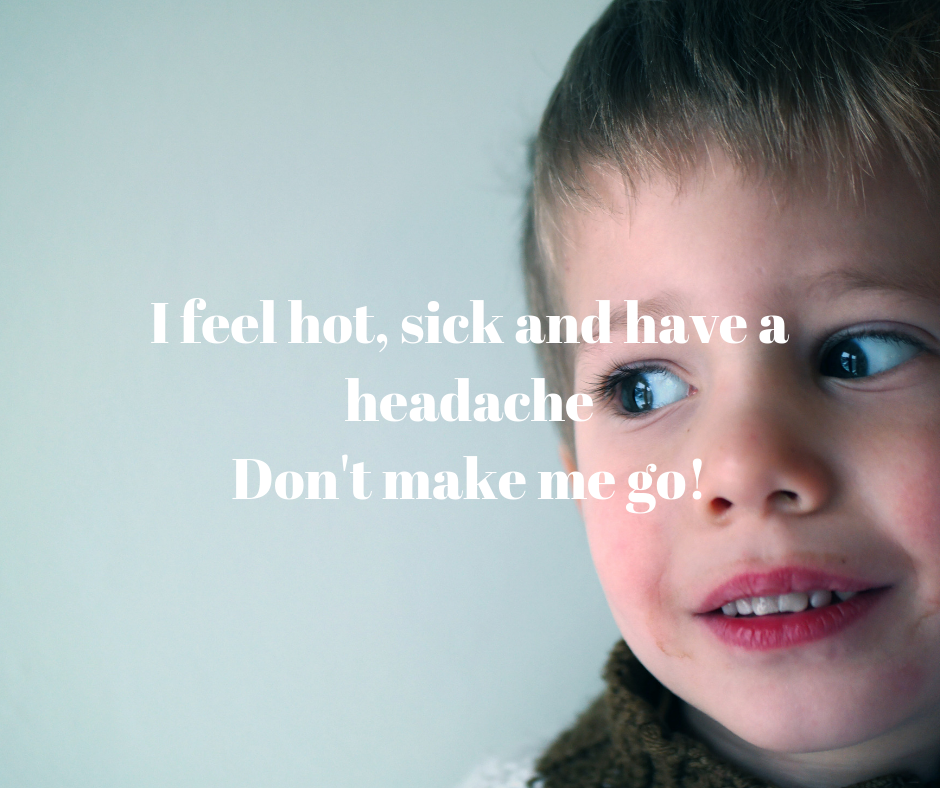Fears are widespread in childhood; however, some children don’t grow out of them, and they escalate over time. Within this blog, I would like you to understand what a phobia is, what symptoms to look out for, and how to help and empower your child.
What is a Phobia?
A phobia is an intense and unreasonable fear of a specific object or situation. Phobias are different from usual fears as they become more severe with age. Children can be frightened of insects, spiders, dogs, injections, dentists, or even being sick.
What symptoms would you notice?
Phobic Behaviours:
- Avoiding the feared object or locations where the trigger might exist, they may avoid or refuse to go to the dentist, the doctor, a park, public toilets, or even a school trip.
- They make parents check things first (e.g., ensure a room is free of bugs before bedtime).
- They ask a parent to be present or available.
- They run away from potential exposure.
- May hit/kick.
- Crying.
- Clinging.
- Tantrums.
Physical Symptoms:
- Increased heart rate
- Sweating
- Trembling or shaking
- Feeling of choking
- Chest pain or discomfort
- Upset stomach
- Numbness
- Cold or hot
- Looking flushed
Negative Thoughts:
- It’s going to bite/sting me.
- I can’t go to the park; I can’t handle seeing a dog.
- It’ll not be perfect; I can’t do it, Mummy, don’t make me, please.
- What if I vomit?
Why would my child develop a Phobia?
They can be linked to a frightening event or stressful situation. Research shows that phobias, as well as Anxiety, can run in families. Genetic ( nature) and environmental factors ( nurture ) can play a part. It is not your fault, but sometimes Anxiety may be learned from family members who are noticeably stressed or anxious. Parents can also contribute to their child’s Anxiety without realising it by how they respond to their child. For example, giving in to the fear and non intentionally colluding with the “avoidance.”
What are normal Developmental Fears, and how can I help my child?
You can watch my video below about age groups for normal fears and several tips to manage Phobia.
My Tops Tips for any parent to manage a Phobia? ( please seek help if your child has a severe Phobia, any information on the website is not to be used as a replacement for help from a Mental Health Professional)
1. Help your child become an expert on the Anxiety.
Educate them on what Anxiety is, how it affects their body, and why they might have difficult thoughts and behaviour.
2. Teaching your child about a specific phobia.
It could go like this.
Parent: So now you know more about Anxiety and the fight or flight response, let’s talk about the Phobia
Child: I know what it is now. Do we have to talk about it?
Parent: Yes, we do. Do you know an uncle or a friend? They were terrified of dogs when they were a child, and we could not go into parks. Your is a bit similar and explain…
Discuss how the Phobia is interfering with their life and how it affects the family. What is the Phobia stopping your child from doing? Let them know it is common, and many children have a phobia.
3. Help them learn coping skills to manage the Phobia by:
- Teaching them feeling words.
- You are accepting, empathising, and validating your child’s worries.
- Listening to worries with full attention and gently helping them to distinguish between facts and fears.
- Teaching them breathing and mindfulness
- I was asking them what you could do to help them feel safe.
- Teach them positive self-talk ( how they talk back to the “fear/worry monster”).
- Patiently encouraging your child to face the situation one step at a time safely this called exposure work; we gently expose your child to Phobia in small manageable amounts.
I hope this helps; sometimes, the information here will help you, but for more ideas, management tips, and more, do join me at my workshop “Stop the Worry Cycle” or contact a health professional. Good luck Love Catherine
Related Posts:
Generalized Anxiety Do’s and Don’t
Is my Child Shy or Suffers from Social Anxiety
How Anxiety creates Disruptive Behaviour




